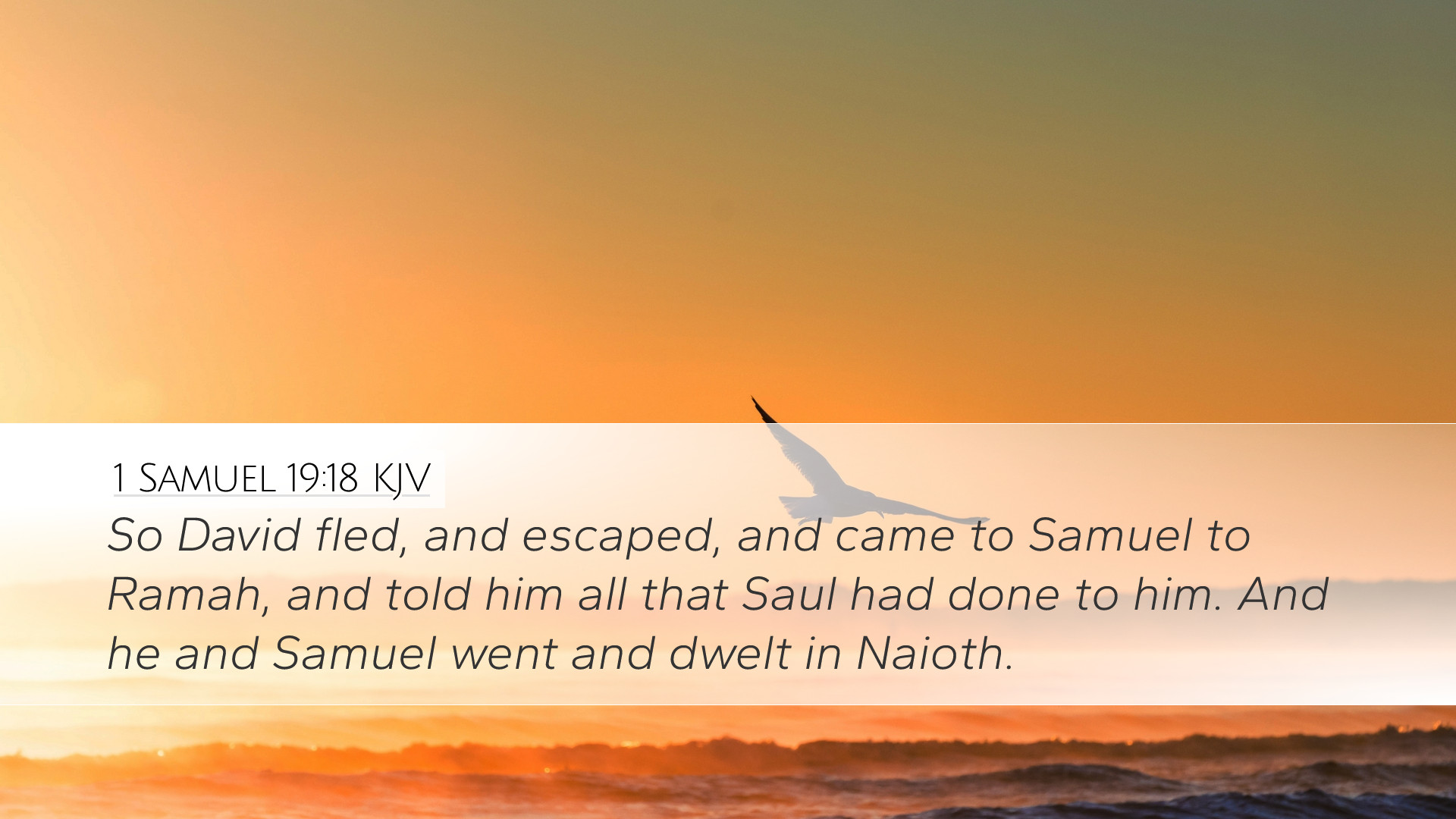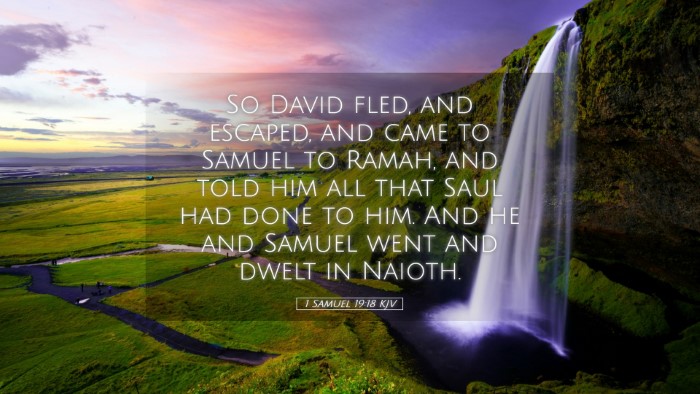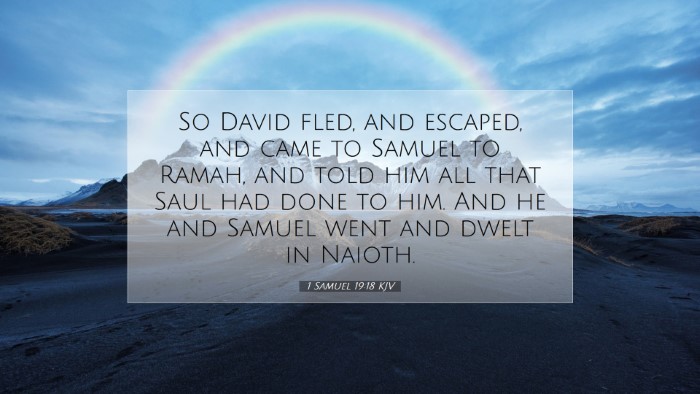Commentary on 1 Samuel 19:18
Verse: “So David fled, and escaped, and came to Samuel to Ramah, and told him all that Saul had done to him. And he and Samuel went and dwelt in Naioth.”
Introduction
This verse marks a significant moment in the life of David as he navigates the turbulent waters of his growing conflict with Saul, the reigning king of Israel. It encapsulates themes of refuge, mentorship, and the divine plan at play in Israel’s history.
Contextual Background
The backdrop of this verse springs forth from David's anointing by Samuel (1 Samuel 16) and subsequent rise in prominence as a warrior and leader, particularly following his defeat of Goliath. Saul's jealousy transforms into a life-threatening pursuit, leading to David's desperate escape.
Exegesis and Commentary Insights
David's Flight
Insight from Matthew Henry: Henry emphasizes that David's flight underscores the reality of a godly man's experience in a world filled with peril. It contrasts David's righteous character with Saul's growing wickedness and despair. David's escape to Samuel symbolizes a returning to divine guidance and mentorship, suggesting that in times of turmoil, believers are drawn back to their spiritual roots.
Albert Barnes adds: The simple act of fleeing indicates David's wisdom and prudence. By escaping to Samuel, he not only seeks physical safety but spiritual counsel. This also represents a critical reliance on God as His chosen leader doesn't act out of vengeance or rebellion but seeks the presence of the prophet, affirming his respect for divine authority.
To Ramah and Naioth
Interpretation of Ramah: Ramah represents a place of prophetic authority and spiritual significance. It was here that Samuel initiated the monarchy's transition from Saul to David. Henry notes that David's choice to return here reflects his need for reassurance from the prophet about his future.
Clarke observes: Naioth, meaning ‘dwellings,’ refers to a community related to prophetic activities. It highlights that David is seeking both protection and community while simultaneously stepping into his destiny as future king. The gathering in Naioth signifies divine assembly and prophetic safety amidst kingly turmoil.
The Importance of Mentorship
Role of Samuel: Samuel serves as a crucial mentor to David. In thoroughly recounting his experiences to Samuel, David reflects the importance of accountability and guidance in the life of leaders. Barnes elaborates that Samuel's steadfastness presents a stark contrast to Saul's increasing madness, showcasing the reliability of divinely appointed leaders.
Theological Implications
God’s Sovereignty: The entire passage emphasizes God's sovereignty. Despite King Saul's intentions, God's purpose will prevail through David. This serves as reassurance for believers that God remains in control amidst chaos and hostility. As Henry remarks, it showcases God's protection over those He has chosen and anointed.
Application for Today
This narrative continues to resonate in modern contexts, particularly for those in ministry or leadership. The following points may be vital for pastors and scholars:
- Seeking Refuge: Like David, leaders often face opposition; turning to trusted mentors for counsel is crucial. This reflects the importance of community and relationship with those grounded in faith.
- Resilience in the Face of Adversity: David's response to Saul's threats illustrates an obedient heart that seeks God's plan, an attitude needed in today’s uncertain world.
- The Role of Prophetic Voices: In every season, identifying and valuing wise counsel can help navigate complex situations while remaining aligned with God's leading.
Conclusion
1 Samuel 19:18 encapsulates a moment of refuge, guidance, and the unfolding of divine destiny that significantly impacts Israel's narrative. David’s flight to Samuel serves as an encouraging reminder of the importance of faith, mentorship, and reliance on God’s protection as we navigate our paths. The lessons drawn from the commentary of Matthew Henry, Albert Barnes, and Adam Clarke remain timeless, encouraging modern readers to seek wisdom and guidance from God and His appointed leaders.


